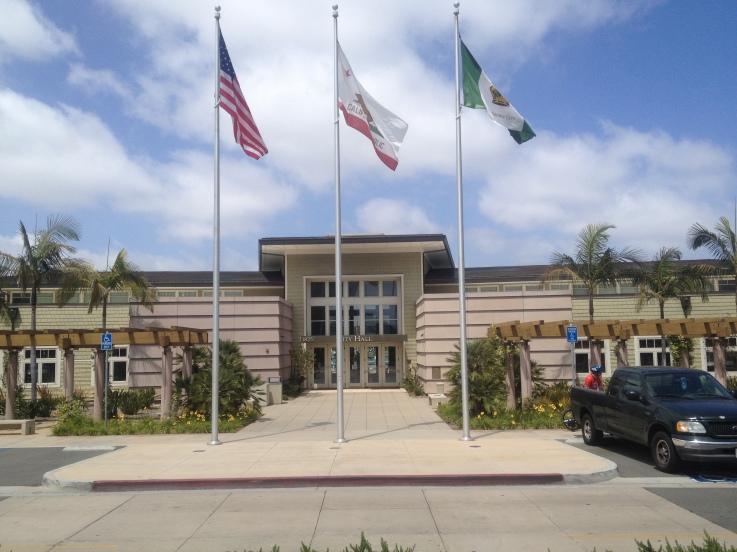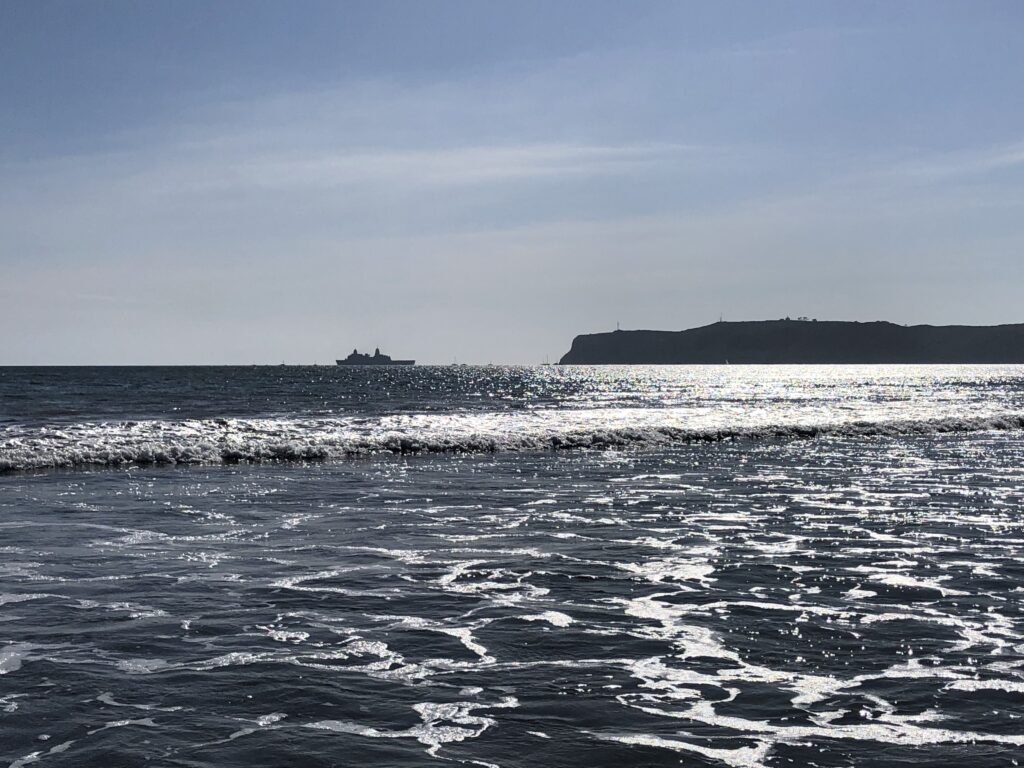The city council cleared its agenda to focus on two public hearings at its meeting on April 19. It approved the Coronado Tourism Improvement District (CTID) annual report and indicated it would continue the hotel levy that funds the agency. There will be a final vote at the May 3 city council meeting. It also agreed to the removal of podocarpus fern pines from a residence at 10th Street and E Avenue. Both votes were unanimous.
Continuation of the CTID levy generated the most controversy. Several residents wanted the city council to put an end to the organization’s “Play Across the Bay” TV ads directed at San Diego County residents.
These visitors “bring everything they want to Coronado when they come and leave it; all we do is clean up after these people,” Susan Keith told the council.
The council refused Keith’s request but in extending the hotel levy it added proviso, suggested by Councilman Richard Bailey, that the CTID “strongly take into consideration how its advertising impacts traffic and parking in the off-season.”
The CTID was established in 2008, at the height of the recession, to bring convention business to the city in the off-season. It is funded by two one-half percent (0.5%) assessments on the city’s four major hotels: The Del, Loews, Glorietta Bay Inn and the Marriott, to market the four hotels in the off-season.
Last year its marketing campaign lead to 42 meetings booked, a 27% increase over last year, 23,781 off-season guests, a 16% increase over last year, according to Todd Little, the CTID’s Executive-Director.
“We need these people, mostly foot traffic. Walk our streets and they spend money, they want to bring back a memento from Coronado,” said Roberta Korte, owner of Taste of Oils.
Support for the CTID extended well beyond the business community. It had the support of the Coronado Unified School District, who received $10,000 from the CTID last year to market the BBMAC Aquatic Center to swim teams across the county, an effort that generated 237 room reservations, according to Little.
The podocarpus fern pines that have been bedeviling Paul Richardson for four years will finally be removed. Fruit droppings from the trees that line Richard’s parkway bind the wheels of his wheelchair and impede his movement.
Richard first asked the city to remove the trees in March of 2012, but was turned down because the city council worried that it might set a precedent. Instead it asked the staff to try and mitigate the problem and bring the matter back to the council if it wasn’t resolved within three to six months.
It never made it back. In May of that year Richard asked that a decision be extended to April 2013 to give the mitigation efforts a fair chance.
Volunteers planted the trees in the early 1990’s, according the Shannon Player, member of the city’s Street Tree Committee. She saw removal of the trees from a more global perspective.
Noting that in the past year trees have been removed from Spreckels Park and to make room for a new senior activity center and bowling green club. Others have been lost to new construction.
“Every tree lost makes the ones that remain more and more precious,” she said.
For the past four years the city has tried to retard the fruiting by trimming and fruit suppression treatments. None of it worked. Sweeping alone was equally ineffective. “Even if you sweep in the morning they’re back by afternoon,” Richardson told the council.
Not only has he made every reasonable effort to save the trees; he has also offered to pay for their removal and replacement.
Mayor Casey Tanaka praised Richardson for his patience and pointed out that the council was not setting a precedent by agreeing to have the trees removed. This was a special case involving ADA accessibility and a tree that wasn’t all that popular.
“There’s nothing rare about these trees,” said Laura Crenshaw, noting that while she was not a neighbor she grew up in the house next door to Richardson’s.
“I can’t believe this has taken four years. This man has been to heck and back do the right thing,” she added.
To give itself ample time to discuss these two issues the council moved the following agenda items to consent calendar:
- Accepted “Naked Warrior,” a sculpture honoring Navy frogmen, and approved installing it in Glorietta Bay Park. The sculpture was a gift from the UDT-SEAL Museum; installation will cost $50,000.
- Adopted an ordinance to allow leashed dogs in Bayview Park.
- Allocated funds for Free Summer Shuttle services from the Cays and from Loews Coronado Bay Resort to the Village.
- Approved placing vehicle speed feedback signs along Third and Fourth Streets.
- At the request of Bailey it postponed giving a consultant $59,810 to develop a comprehensive active transportation plan. Bailey said he needed more time to review the offer.





